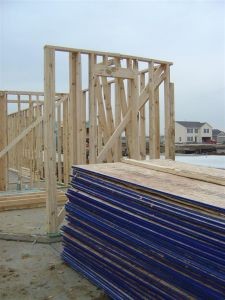Claims of Negligence by an Engineer in New Jersey Construction Litigation Must be Supported by Expert Opinion in an Affidavit of Merit
New Jersey construction litigation often involves claims against contractors for improper construction or delay. Contractors, in turn, often argue as a defense, counterclaim or cross-claim that any delay or improper construction was the fault of the licensed professional on the project, such as the engineer or the architect. Owners may also make these claims against architects and engineers directly. A trial judge in the Superior Court of New Jersey in Morris County recently addressed what is required to maintain such a claim in the case of Township of Parsippany-Troy Hills vs. Thomas Controls, Inc.
the project, such as the engineer or the architect. Owners may also make these claims against architects and engineers directly. A trial judge in the Superior Court of New Jersey in Morris County recently addressed what is required to maintain such a claim in the case of Township of Parsippany-Troy Hills vs. Thomas Controls, Inc.
Background: The Lawsuit
The Township of Parsippany-Troy Hills sued Thomas Controls, Inc. over its work on construction improvements to the Township’s wastewater management treatment plan project. The Township had separately contracted with Keystone Engineering Group to act as engineers on the project. Thomas filed counterclaims against the Township and filed a third-party complaint against Keystone, suing it for alleged negligence, delay and professional malpractice. Keystone filed a motion to dismiss Thomas’s third-party complaint, arguing that the New Jersey Affidavit of Merit Statute requires that an affidavit of merit must be filed within 120 days of a defendant filing an answer when the defendant is a licensed professional and the claims are for negligence or professional malpractice. As a licensed engineer, Keystone argued that this law protected it because Keystone did not file an affidavit of merit within the required time frame.
 New Jersey Lawyers Blog
New Jersey Lawyers Blog


 the New Jersey
the New Jersey  to get paid: New Jersey’s
to get paid: New Jersey’s  implications for contractors. The decision is published, so it is precedent for future cases in which contractors challenge the award of New Jersey construction contracts by state and local governments. In this post I won’t dwell on the details of which contractor was right and which was wrong, but rather I’ll focus on the Appellate Division’s examination of the procedures followed, which is a cautionary tale about the ability of New Jersey construction contractors to meaningfully object to the award of public contracts.
implications for contractors. The decision is published, so it is precedent for future cases in which contractors challenge the award of New Jersey construction contracts by state and local governments. In this post I won’t dwell on the details of which contractor was right and which was wrong, but rather I’ll focus on the Appellate Division’s examination of the procedures followed, which is a cautionary tale about the ability of New Jersey construction contractors to meaningfully object to the award of public contracts.